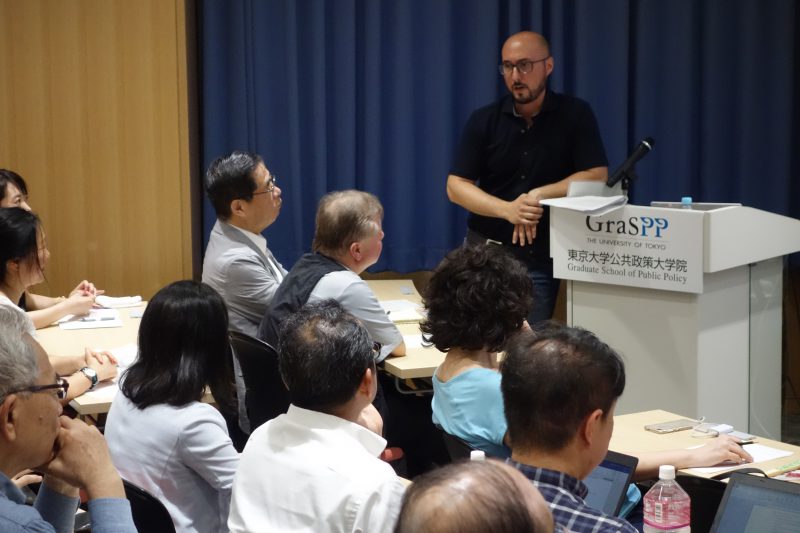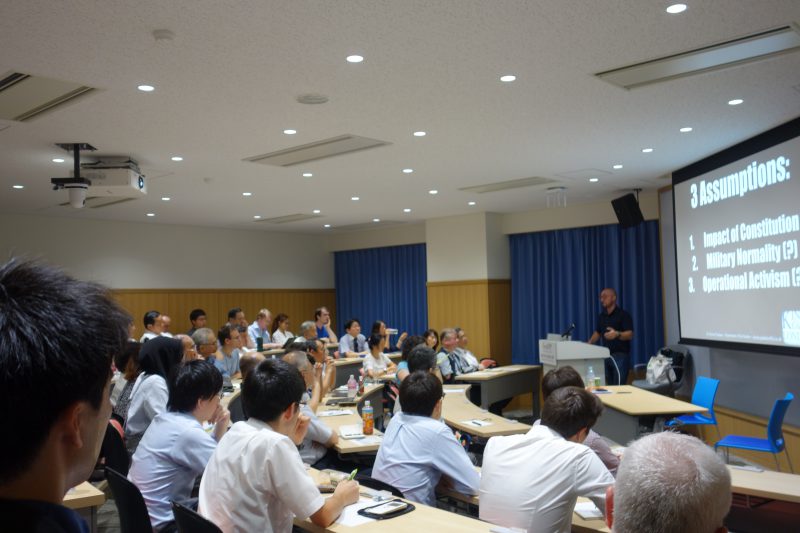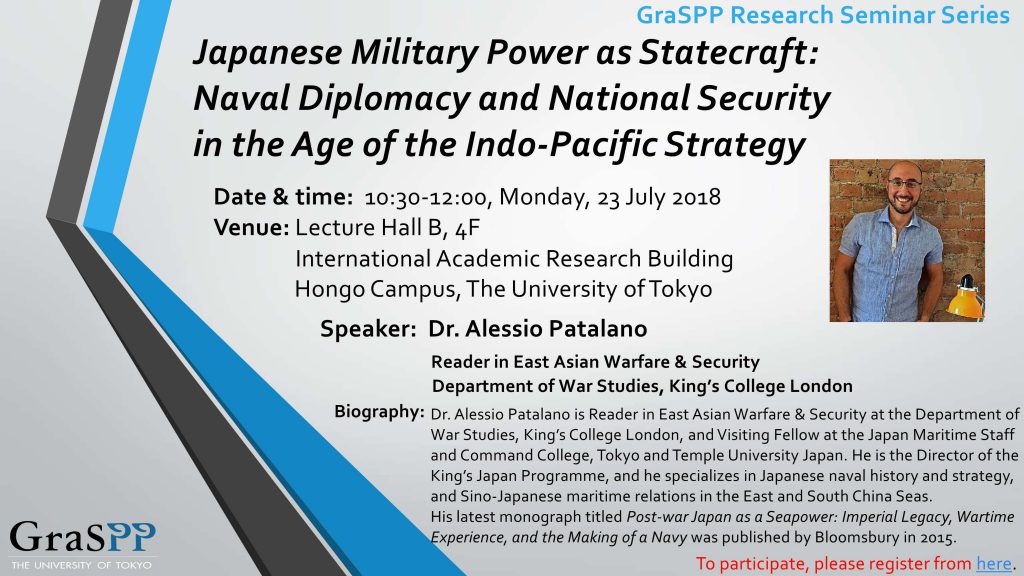【開催報告】
公共政策大学院リサーチセミナーシリーズの一環として、2018年7月23日にロンドン大学キングス・カレッジ戦争学部(Department of War Studies)からアレッシオ・パタラーノ氏をお迎えして”Japanese Military Power as Statecraft: Naval Diplomacy and National Security in the Age of the Indo-Pacific Strategy”の講演を開催しました。
50名以上の参加者が会場の席を埋めました。セミナーの詳細は下記の「概要」をご参照ください。


**************

日時: 2018年07月23日(月)10:30–12:00
場所: 国際学術総合研究棟4F 講義室B MAP
講演者: Dr. Alessio Patalano, Reader in East Asian Warfare & Security, Department of War Studies, King’s College London
言語: 英語
定員: 40名
主催: GraSPPリサーチセミナー
登録:必須 参加をご希望の場合はこちらよりご登録をお願いいたします。定員に達したため応募を締め切りました。
概要:
The paper challenges the current approach in the literature on Japanese defense policy focusing predominantly on the assessment of capabilities to explain changes in the country’s post-Cold War military posture. The paper draws upon a variety of documents and original materials from the Japan Ministry of Defense (JMOD) and the Japan Maritime Self-Defense Forces (JMSDF) to focus instead on the renewed use of military power as a tool of statecraft as a significant factor in this process of transformation.
The paper argues that since the end of the Cold War, the single most significant change in the Japanese defense and military posture concerned the rediscovery of the importance of military power as a tool to support foreign policy and diplomacy. It explores this question by examining the expanding scope of Japanese naval diplomacy. In particular, the paper shows how since the time of the first Abe government, Japanese naval diplomacy has become a primary tool of statecraft to build relationships and support the country’s broader agenda in regions that are considered by Japanese officials as vital to its national security. The paper further suggests that during this period a maritime strategy has come to inform Japanese national security policy, which was essential to develop a posture of ‘commitment by presence’ from Southeast Asia to the Western Indian Ocean. Within this context the paper introduces the use of the notion of ‘strategic port calls’.
In both regions, naval diplomacy is playing an important role in showcasing Japan’s potential as a cooperative power and as a security provider interested in maintaining the existing maritime order and opposing China’s maritime and economic expansion. In showing the growing role of Japanese military power in the making of Japanese statecraft the paper shows also the limits of explanations according to which Chinese assertiveness at sea has been in itself a sufficient factor to explain transformations in Japanese military behavior.
講師プロフィール:
Dr Alessio Patalano is Reader in East Asian Warfare & Security at the Department of War Studies, King’s College London, and Visiting Fellow at the Japan Maritime Staff and Command College, Tokyo and Temple University Japan. He is the Director of the King’s Japan Programme, and he specializes in Japanese naval history and strategy, and Sino-Japanese maritime relations in the East and South China Seas.
His latest monograph titled Post-war Japan as a Seapower: Imperial Legacy, Wartime Experience, and the Making of a Navy was published by Bloomsbury in 2015.
問合せ:graspp_eventinfo[at]pp.u-tokyo.ac.jp

